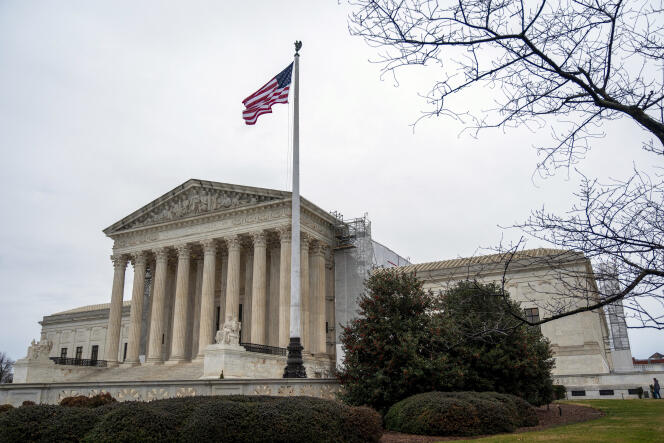


The prospect of Donald Trump being tried in Washington for his role in the January 6 insurrection is fading. On Wednesday, February 28, the US Supreme Court agreed to examine the question of presidential immunity which the candidate claims applies to his role in the assault on the Capitol and the attempt to overturn the 2020 presidential election. According to the Court's statement, it will consider "whether and if so to what extent does a former President enjoy presidential immunity from criminal prosecution for conduct alleged to involve official acts during his tenure in office."
In a strongly argued case on February 6, a federal appeals court in Washington, DC, ruled that the former president lacked such immunity. The Supreme Court is undertaking an accelerated process by claiming the final word on this fundamental issue. During the week of April 23, the nine justices will debate the issue – three of whom were appointed by the then-president. However, their written decision may not come until the end of the session, on July 1, almost certainly compromising the possibility of holding the federal trial before November's presidential election.
Due to the amount of evidence, which stretches from election night in November 2020 to January 6, 2021, Special Counsel Jack Smith has proposed a two- to three-month trial. Dialatory procedures will likely succeed, as any serious trial will be delayed until after the election, as Trump has repeatedly stated that he would pardon himself should he return to the White House in January 2025.
The Supreme Court had already exempted presidents from civil liability for official acts and the former president's lawyers argued that this protection should extend to criminal prosecutions as well. Trump's filing said that, "An absence of criminal immunity for official acts threatens the very ability of the president to function properly." "Any decision by the president on a politically controversial question would face the threat of indictment by the opposing party after a change in administrations," the filing went on.
Special counsel Smith wrote in his brief to the Supreme Court that "It would be a striking paradox if the president, who alone is vested with the constitutional duty to 'take Care that the Laws be faithfully executed,' were the sole officer capable of defying those laws with impunity." The special counsel believes that civil immunity is possible because of a criminal responsibility that has never been disputed. He recalled that Ronald Reagan was the subject of a criminal investigation, which resulted in no final indictment, during the Iran-Contra affair in 1985. According to Smith, Gerald Ford's pardon for Richard Nixon after his resignation following the 1974 Watergate scandal was a de facto recognition that criminal immunity did not exist.
You have 55.04% of this article left to read. The rest is for subscribers only.
